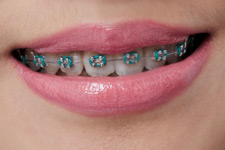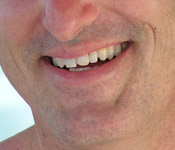Just why so many women are plagued by canker sores is somewhat of a mystery. Women tend to get canker sores more often than men; this may be due to the hormonal changes brought by the menstrual cycle among women. However, it is important to note that evidence to support this factor still remains scarce. Canker sores are painful open sores or ulcers inside the mouth that can last from one to two weeks. The exact cause of aphthous stomatitis, the medical term for canker sores, is still unknown, but several factors are seen to contribute to this condition.
 Menstrual Cycle and Hormonal Changes
Menstrual Cycle and Hormonal Changes
A possible contributing factor to the emergence of canker sores is the hormonal changes experienced by women during the menstrual cycle. This may be one of the reasons why canker sores are more common in women, but there is still little evidence supporting this claim and there are still no explanations to how and why this occurs. Research and studies also suggest that during pregnancy mouth ulcers are less likely to appear, indicating that perhaps the hormonal changes that take place during pregnancy may somehow reduce the likelihood of developing canker sores. Studies have yet to prove if hormonal changes among women is indeed a causative factor for canker sores, but the anecdotal evidence is interesting.
Vitamin Deficiency
One of the seen causes of canker sores is the deficiency in certain vitamins. Individuals with deficiencies in iron, folic acid, vitamin B12 and zinc are more likely to have canker sores. Although the mechanism is still unclear, the reason why deficiency of these vitamins causes mouth ulcerations may be due to the fact that these vitamins participate in the normal development and reproduction of the cells inside the mouth. Deficiencies in these vitamins disrupt the regeneration and regulation of these cells making them more prone to breakouts such as canker sores. Although vitamin deficiency is one possible answer to the question of what causes canker sores, a recently published study by MedicineNet.com indicates that supplementation of these vitamins, i.e. taking a multivitamin, is not seen to prevent the ulcers in individuals predisposed to getting them.
Stress
Stress can also cause canker sores. It causes a myriad of chemical reactions inside the body. Constant exposure to stress weakens the immune system and decreases the body’s ability for regeneration and repair. A weak immune system predisposes a person to developing infections; this happens when the number of pathogenic microorganisms in the body is not contained by the body’s defenses. Pathogenic microorganisms then begin to invade certain parts of the body (in this case the mouth) and destroy its structure. Stress also robs the body of its ability for regeneration and repair; this would explain why the mucus lining of the mouth breaks open and why canker sores emerge.
Physical Trauma to the Oral Mucosa
Physical trauma, abrasions and lacerations are also related to canker sores. Sharp objects, abrasive foods (e.g. toast, chips, or crackers) and accidental biting of the lips or the buccal mucosa causes open lesions in the mouth, some of them becoming canker sores.
Canker sores or aphthous stomatitis is considered an idiopathic disease, up to this date there is still no exact mechanism to explain what causes canker sores.



